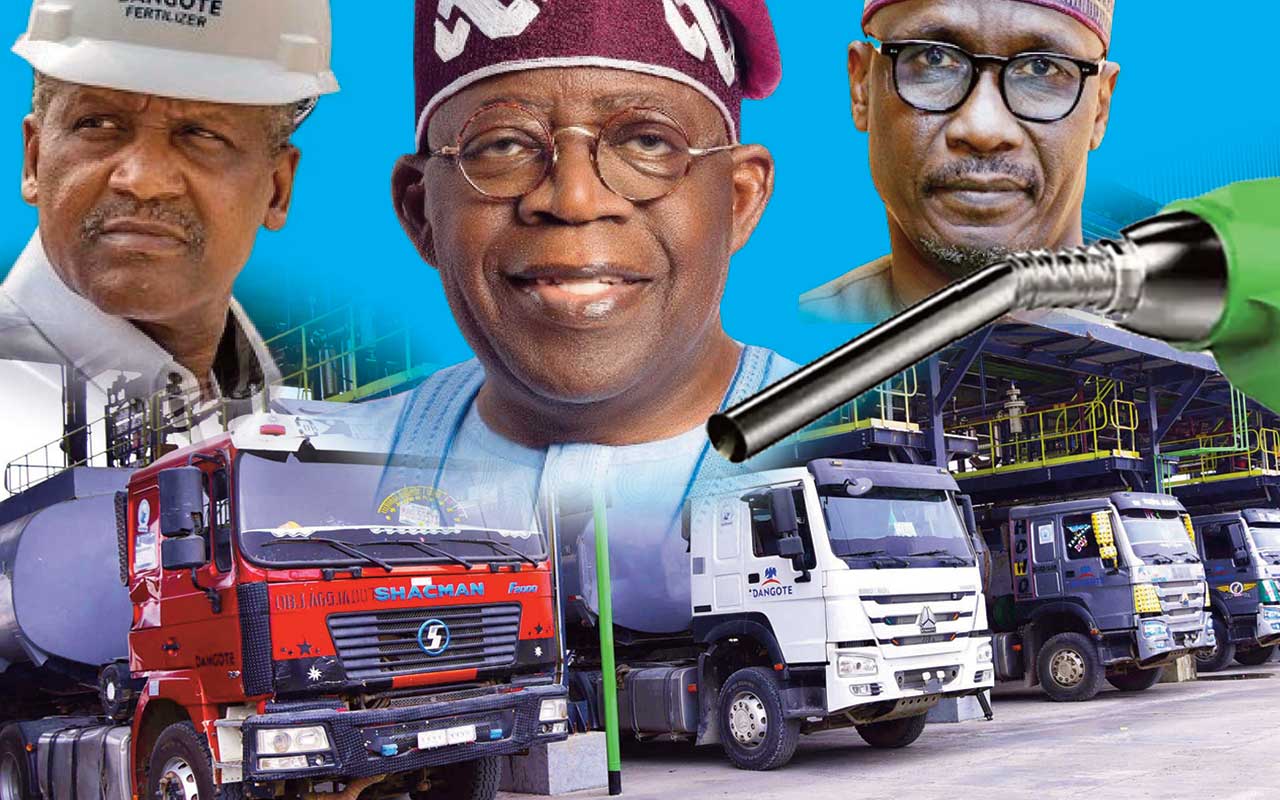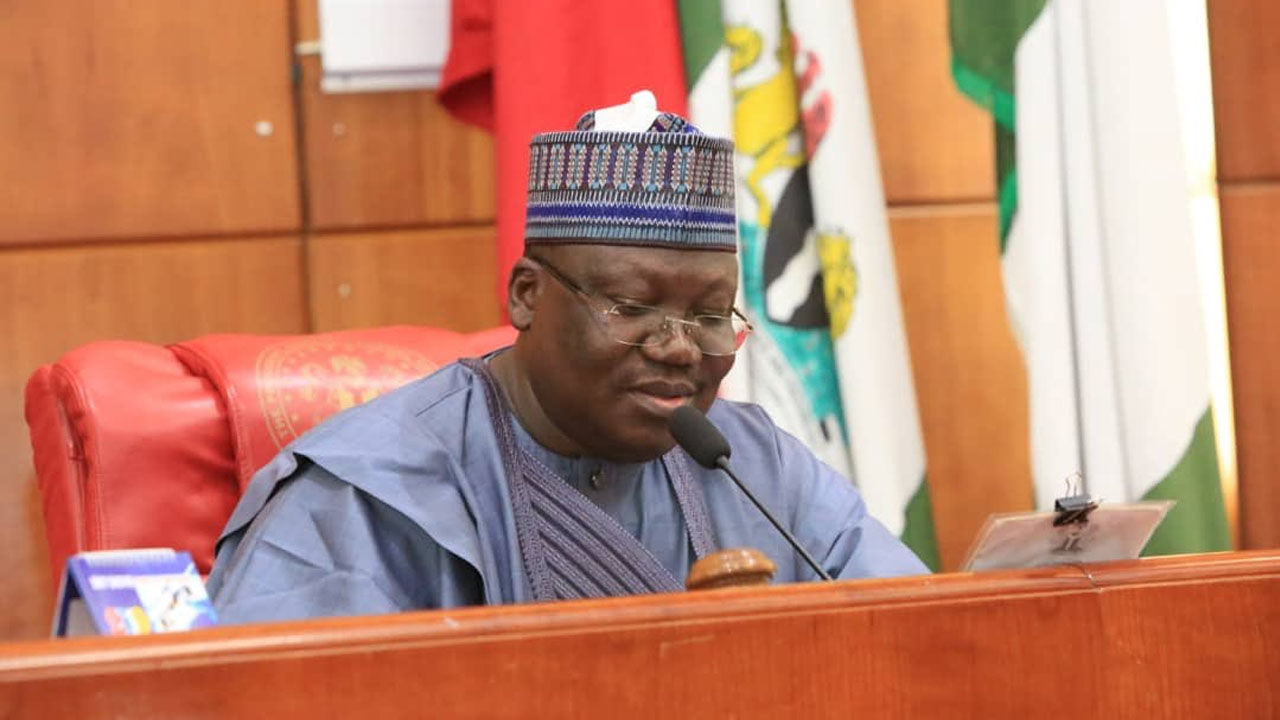 • NNPC insists on N898 per litre, excluding associated costs
• NNPC insists on N898 per litre, excluding associated costs
• NNPC offers $125m letter of credit for September loading
• IPMAN to engage NNPC, groans over N1,000/litre ex-depot price
• Dangote Refinery still in pre-commissioning phase, not fully licensed – NMDPRA insists
• FG mum on halt in import allocation, product quality
• We have surplus to export, says Edwin
The Nigerian National Petroleum Company Limited (NNPCL) has halted the importation of Premium Motor Spirit (PMS) as the Nigerian Midstream Downstream Petroleum Regulatory Authority (NMDPRA) discontinued the issuance of import allocation amid the loading of PMS from Dangote Refinery.
Though the spokesperson of NNPCL, Olufemi Soneye, was quoted to have stated that PMS was purchased from Dangote Refinery at N898 per litre, the claim was debunked by the Dangote Group’s Chief Branding and Communications Officer, Mr Anthony Chiejina.
Soneye however insisted that the NNPC purchased PMS from Dangote Refinery at N898 per litre, excluding associated costs incurred by the firm.
According to Chiejina, a formal announcement on the pricing, by the Technical Sub-Committee on Naira-based crude sales to local refineries, appointed by President Bola Ahmed Tinubu which will commence on October 1, 2024, is expected soon.
Chiejina also confirmed that the current stock of crude was procured in dollars.
“It should also be noted that we sold the products to NNPCL in dollars with a lot of savings against what they are currently importing. With this action, there will be petrol in every local government area of the country regardless of their remote nature”, he added.
The development might keep the pump price of PMS at the rate Nigerians are already buying, thus indicating that subsidy on the product remains, as NNPC is reportedly selling to depot owners and other marketers at a coastal price of N765.50/litre. With the additional cost incurred from vessels into tank farms, especially for those loading by vessels and the logistics cost into the retail outlets, these variables may have pushed the landing cost above N1,100/litre.
By implication, the country may still incur about N5 billion subsidy daily or N150 billion monthly judging by the 25 million litres being off taken from Dangote Refinery. That’s however, a sharp reduction from the over N250 billion on 25 million litres previously incurred.
The Guardian gathered that the national oil company on Friday, offered the refinery a letter of credit of $125 million as the refiner and the last resort trader reached a deal to offtake the product by land and water.
While the National President of the Independent Marketers Association (IPMAN), Abubakar Migandi Garima said yesterday that the marketers are still buying PMS at about N1,000 per litre from across depots, The Guardian gathered that NNPC and Dangote agreed to deal directly on Platt and premium, which is what is obtainable at the international market.
For September, NNPC is expected to buy from Dangote in dollars and pay them via a letter of credit, which was issued on Friday for the volume NNPC would lift this month.
From October, The Guardian gathered that NNPC would buy from Dangote on two terms, which will in the first place see Dangote load with long-range two (LR2) vessel and deliver to NNPC offshore Lagos just like other international traders at Platt and premium as NNPC would issue the refiner bank guarantee/letter of credit payable 30 after the arrival of the vessel and foreign rate would be the Nigerian Autonomous Foreign Exchange Market (NAFEM) rate as advised by Central Bank of Nigeria (CBN).
The second option would see NNPC nominate to load some volume by truck from the gantry at Platt and premium, which would also be covered by a letter of credit to be issued by NNPC.
The Guardian gathered that the date tank nominated to NNPC would be the assumed bill of lading date even as NNPC is expected to supply the refinery with 17 million barrels of crude with Dangote paying for the crude in the equivalent of PMS received in naira and others would be paid in dollar.
The Spokesperson of NNPCL, Olufemi Soneye disclosed that the claim that the purchased PMS at N760 per litre from Dangote was incorrect.
“For this initial loading, the price from the refinery was N898 per litre,” Soneye said.
Executive Vice President of NNPCL’s downstream operations, Adedapo Segun said NNPCL would not set the market price of petrol in Nigeria, stating that petrol prices will be determined by global market forces rather than government regulation.
He emphasized that NNPCL now functions purely as a business entity, not as a regulator in the oil and gas market.
Segun explained that Nigeria still modulates fuel pricing to ensure affordability, unlike developed markets where prices fluctuate more freely.
He noted that while NNPCL has reached an agreement with Dangote Refinery on pricing, the final price is market-driven and based on negotiations.
“NNPC is not a regulator and has no authority to set prices. Pricing is determined by the market forces,” Segun said.
He added that discussions with Dangote Refinery involved back-and-forth negotiations before an agreement was reached on pricing.
Segun also addressed concerns over the Naira-for-crude payment model recently introduced by the federal government, clarifying that while payments will be made in Naira, the transactions will still be based on dollar valuations.
“The transaction remains in dollars, but payment will be done in Naira when due,” he said. He refuted claims that this model would affect petrol pricing or involve herding crude oil to local refineries.
The Executive Vice President assured that NNPCL, like other market players, would adhere to market principles in its operations.
Garima said unless the NNPC supplies them with the product directly, going through the marketer would cost them nothing less than N1000 per litre from the depots of the Depot and Petroleum Marketers Association of Nigeria (DAPMAN) and as such the product would remain high at the pump.
Garima noted that the expectation that the refinery would reduce the challenges facing the marketers may be elusive unless NNPC provides them with the product directly.
“Instead of giving our products to the depot owners, we are going to engage on Monday to see how we can get the product directly,” Garima.
He noted that the marketers’ discussion with NNPC would also border on price, adding that NNPC is currently selling to the marketers at N875 per litre while the private depots are selling up to N1,000 per litre.
“That is what is killing the country. We are the only ones buying from the private depot owners and their prices are so high. That is why NNPC needs to allow us to load directly from them.
The Dangote Refinery has not yet received its full operational license because it is still in the pre-commissioning stage, according to George Ene-Ita, Head of Public Affairs at the Nigerian Midstream and Downstream Petroleum Regulatory Authority (NMDPRA). Ene-Ita explained that the refinery is divided into four sections, known as priorities one, two, three and four.
Currently, only priorities one and two have been approved to introduce hydrocarbons, allowing the facility to operate on a test-run basis and produce limited petroleum products such as diesel, jet fuel, and kerosene.
This pre-commissioning phase involves a pre-startup safety audit to test the plant’s mechanical, electrical, and installation systems. Production of Premium Motor Spirit (PMS) will not reach optimal levels until priorities three and four are approved for hydrocarbon introduction. Once the entire plant is functional, the refinery will undergo a 90-day observation period, during which further tests will be conducted to ensure compliance with regulatory guidelines.
Ene-Ita also clarified concerns about the colour of the PMS produced during this phase. While the Nigeria Industrial Standards (NIS) specifies that PMS should be oxblood red, the current colour may not conform to the standard since the plant is still in its pre-commissioning stage. However, he emphasized that color is not a quality indicator and is not a regulatory compliance factor.
Full conformity to NIS standards will be expected once the refinery becomes fully operational and licensed.
Ene-Ita did not respond to The Guardian on the reason the regulator halted the issuance of import allocation, a development that some analysts said could cause a shortage of the white product.
Vice President of Dangote Industries Limited, Devakumar Edwin, yesterday, expressed pride in the company’s role in addressing Nigeria’s long-standing petrol supply issues.
Edwin highlighted that after years of struggling with fuel shortages, the solution has finally arrived through local production of PMS by a Nigerian-owned company.
He noted that not only was the refinery constructed by a Nigerian company, but it would also produce enough petrol to meet the country’s demands, with a surplus available for export.
“This is a moment of great pride for every Nigerian,” Edwin said, emphasizing the significance of locally sourced and produced fuel.






